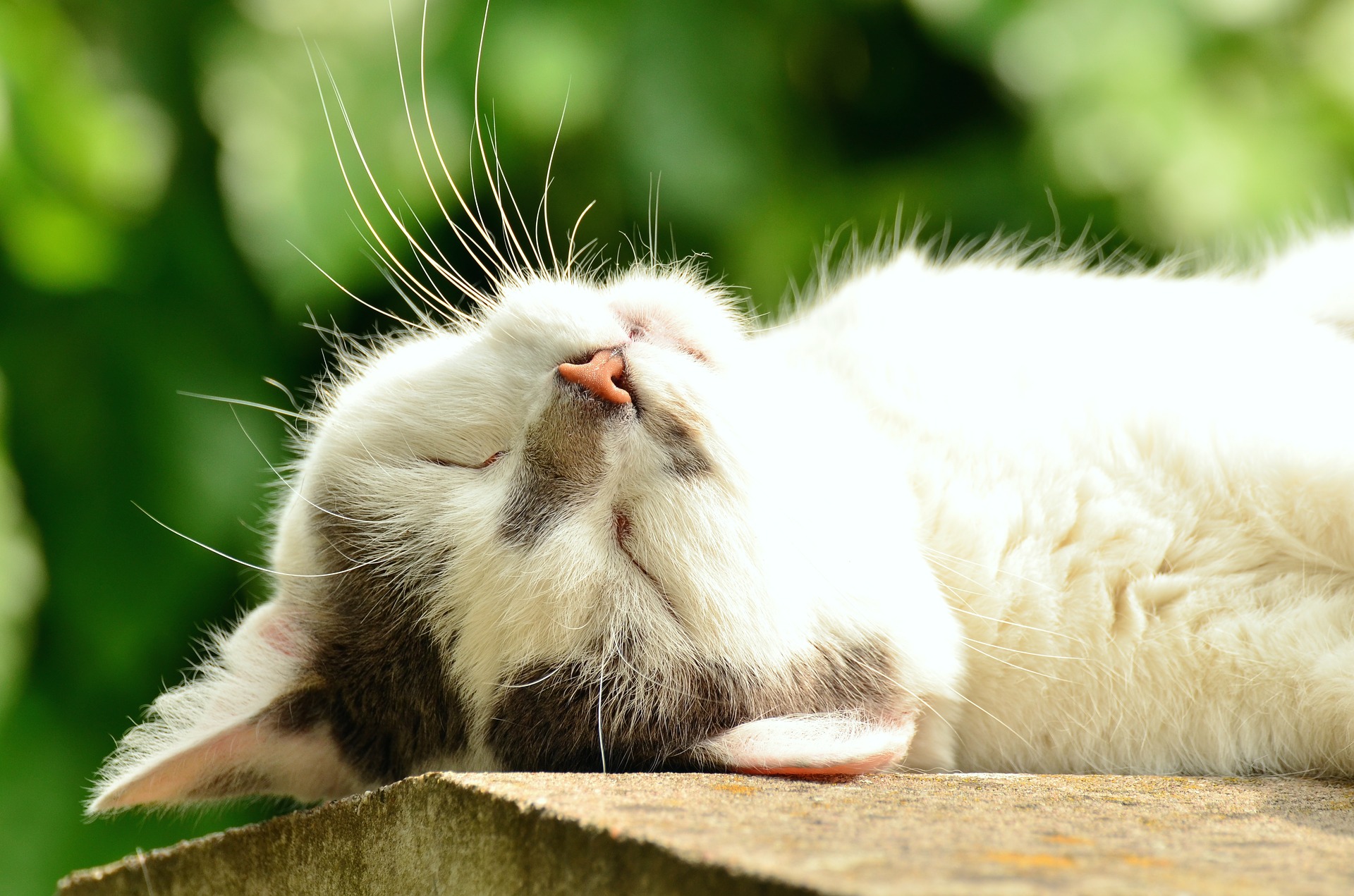If you’ve ever watched your furry feline over the course of a day, you’ve probably seen them assume the silliest cat positions while asleep. These sleeping positions are more than entertaining, though — they can reveal information about whether your cat is secure, on guard, feeling threatened, or feeling completely content. Understanding each cat sleeping position meaning can help you to better interpret how your cat is feeling when he or she decides to get some shut-eye.

All curled up
Many cats sleep in a curled-up position, and some curl up so tightly they resemble a small ball. This position can indicate several things. A cat curled up tightly may be doing so in an attempt to protect itself. Curling up can give your cat a sense of security, especially when tucking him or herself into a small space, like a cardboard box, for a nap.
Curling up also helps a cat to conserve their body heat, so your cat curling up for a nap may be telling you that it’s chilly in your home.
The loaf position
The loaf position, where your cat’s paws are tucked under your them and he or she looks impressively like a loaf of bread, seems to be a favorite. If your cat is sleeping this way, your pet is comfy and relaxed, but your cat’s also positioned so they can jump to his feet if needed. It’s likely that your cat is just dozing, rather than getting quality deep sleep.
Eyes half-open
Is your cat catching some shut-eye — kind of? If your cat is sleeping with one eye open and one eye closed, your feline’s resting up but keeping himself aware of their surroundings. Cats may leave one eye open or sleep with both eyes half-closed in case a threat arises and need to wake up quickly.
You might see your cat assume this sleeping position if things in your home are in flux, like if you recently welcomed home a new baby or pet. It’s also common for cats to leave an eye open while sleeping if they’re in a new environment or otherwise feeling unsettled.
Stretched out sideways
Cats who sleep sideways are usually getting deep, quality sleep. This pose indicates that your cat is highly relaxed and is comfortable enough to stretch out and really sleep.
Cats sometimes assume this position when they’ve found a warm, sunny spot. They may use this posture to help soak up as much heat as possible. A stretched-out cat might resemble Superman and may even drape his paws or legs over the edge of his cat bed or furniture.
Contorted and belly up
You’ve seen this pose — your cat assumes the position of a contortionist, head one way, hind legs the other, their middle all twisted up somewhere in between. If your cat’s legs are going every which way, it’s all about comfort — and your feline’s feeling secure enough to sleep in whatever position makes them the most comfy.
Often, this contortionist position is paired with a belly-up position. If your cat is sleeping with his belly exposed to the sky, it means they are totally secure. Your pet’s belly is a part of their body that they instinctively know to protect, so if your cat doesn’t care who sees his belly, he or she is completely at ease with their environment and is ready for a deep snooze.
Additional sleep signals to watch for
Cat-sleeping positions can provide you with information about how your feline may be feeling, but it’s also important to keep an eye on your cat’s sleeping habits. Sudden changes in your cat’s sleeping habits may indicate that he or she could be experiencing a health issue.
Watch for changes like a significant increase in how much time your cat spends sleeping each day. Sleep habits will differ depending on the cat and can also vary depending on the season, but a cat that suddenly starts to spend much more of the day napping may not be feeling well.
Cats often seek out new favorite sleeping spots, but this can also indicate a potential health issue. If your cat starts retreating to tucked-away spaces like locations under the bed or in a closet, your pet may not feel well or may be stressed by a recent change, like a new pet coming into the home.
Sleep positions and behaviors can give you an indication of your cat’s well-being. If you notice suspicious changes in your cat’s sleeping habits, it’s a good idea to take them to the vet for a check-up.
Editors' Recommendations
- Wondering why cats chirp? Fascinating reasons why your cat chirps at birds (and you)
- How to cat-proof your balcony before the unthinkable happens
- There’s a totally normal reason cats throw up after eating grass – here’s why
- When do kittens’ eyes change colors? The answer is so cool – here’s what to know
- Your cat trilling is actually a good thing – here’s why



